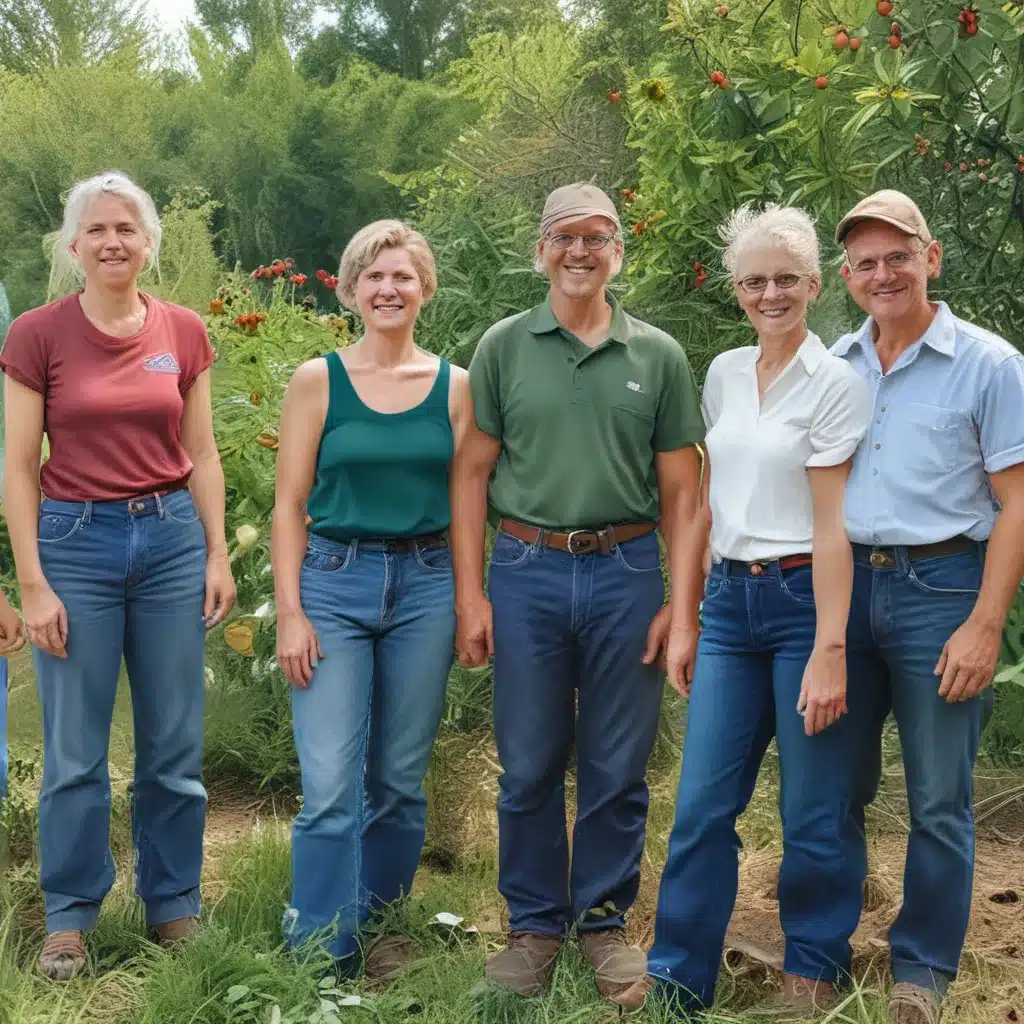
As I step onto the sun-dappled fields of Thornapple CSA, I’m immediately struck by the sense of purpose and community that permeates the air. This isn’t just a place where fruits and vegetables are grown – it’s a living, breathing testament to the power of small-scale agriculture to transform lives and strengthen rural communities.
The Roots of Thornapple CSA
I’ve always been fascinated by the story behind the produce that lands on my plate, and Thornapple CSA’s journey is one that deserves to be told. It all started back in the 1990s, when a group of local farmers in Harford County, Maryland, came together with a bold vision: to create a community-supported agriculture (CSA) program that would empower small-scale growers and provide fresh, nutrient-dense food to their neighbors.
According to the Harford County Land Preservation, Parks, and Recreation Plan, the region had seen a significant decline in the number of active farms, from over 1,000 in the 1950s to just 345 by 2012. The founders of Thornapple CSA knew that they needed to act quickly to reverse this trend and support the small-scale farmers who were the backbone of their local food system.
Empowering Smallholder Farmers
As I wander through the lush rows of produce, I can’t help but be struck by the level of care and attention that goes into every single plant. These are not just crops – they are the lifeblood of the farmers who have dedicated their lives to nurturing this land.
In a recent congressional hearing, the importance of supporting small-scale farmers was highlighted as a crucial step in building a more resilient and equitable food system. Thornapple CSA has taken this message to heart, providing its member farmers with the resources, training, and infrastructure they need to thrive.
One of the ways they do this is through their innovative “hub and spoke” model, where the central Thornapple CSA facility acts as a hub for processing, storage, and distribution, while the individual farms operate as spokes, each contributing their unique specialties. This allows the smallholder farmers to focus on what they do best – growing high-quality, sustainable produce – while the CSA team handles the logistical challenges that can often overwhelm smaller operations.
But the support doesn’t stop there. Thornapple CSA also offers financial assistance, mentorship programs, and access to cutting-edge farming techniques, ensuring that each member farm is equipped to weather the ups and downs of the agricultural industry.
Strengthening Rural Communities
As I chat with the farmers, I’m struck by the sense of pride and purpose they exude. They aren’t just growing food – they’re nourishing their community, preserving their land, and creating opportunities for the next generation of small-scale producers.
A recent community health needs assessment for Kent County, Michigan, highlighted the importance of addressing food insecurity and promoting access to fresh, healthy produce. Thornapple CSA is doing just that, not only by providing its members with a steady supply of nutrient-dense foods, but by investing in the long-term resilience of the rural communities that surround it.
Through partnerships with local schools, community centers, and food banks, Thornapple CSA is ensuring that the bounty of its fields reaches those who need it most. They’ve even launched a program that allows low-income families to “earn” their CSA share by volunteering on the farm, providing them with a sense of ownership and pride in the food they receive.
But the true magic of Thornapple CSA lies in the way it has woven itself into the fabric of the local community. From hosting farmers’ markets and educational workshops to organizing community-wide events and celebrations, this CSA is more than just a place to buy produce – it’s a hub of connection, learning, and shared purpose.
A Taste of the Future
As I savor the fresh, bursting-with-flavor tomatoes and the crisp, earthy greens, I can’t help but feel a sense of hope and excitement for the future of small-scale agriculture. Thornapple CSA is proving that when we empower and support our smallholder farmers, we’re not just feeding our bodies – we’re nourishing our communities, our land, and our collective well-being.
I encourage you to visit the Thornapple CSA website and explore the many ways you can get involved, whether it’s joining the CSA, volunteering on the farm, or supporting their community initiatives. Together, we can build a future where thriving small farms and vibrant rural communities are the norm, not the exception.



